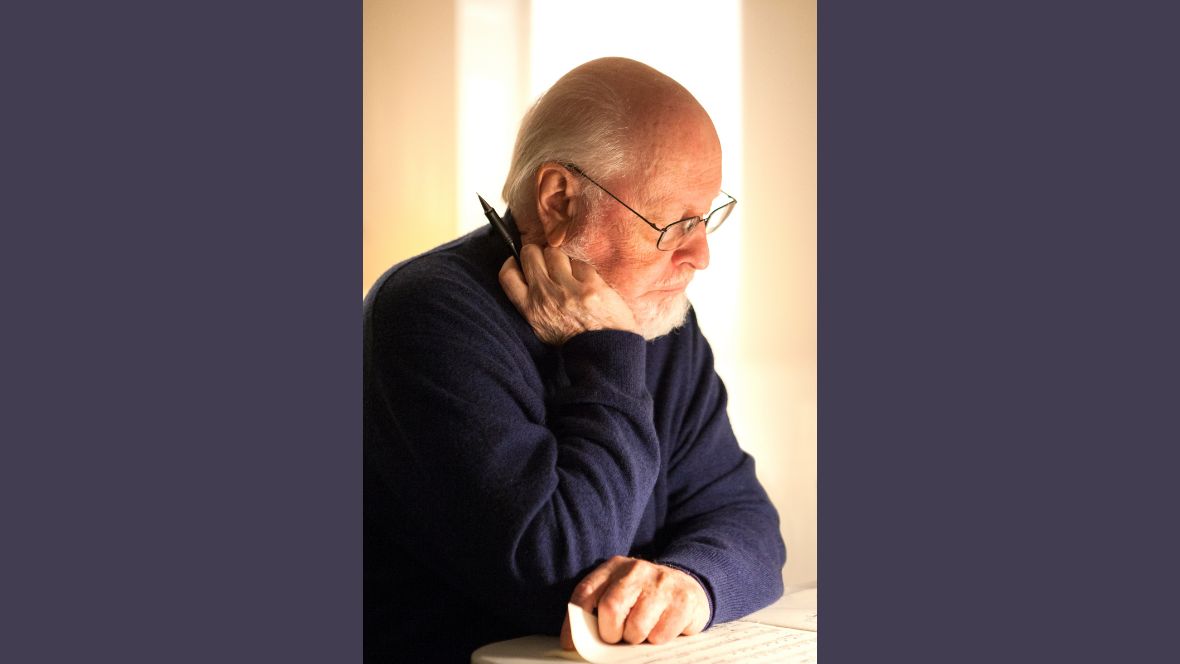The unforgettable music of John Williams is the soundtrack of our lives.
From Luke Skywalker gazing at the twin suns of Tatooine to Indiana Jones battling artifact-marauding foes, composer John Williams has enlivened the action and emotion of beloved stories with his extraordinary motion picture scores. In a career spanning more than six decades, this prolific composer has created music for more than one hundred films. His 50-year artistic partnership with director Steven Spielberg alone gave birth to many of Hollywood’s most acclaimed and popular films, such as Jaws (1975), Close Encounters of the Third Kind (1977), E.T. the Extra- Terrestrial (1982), Jurassic Park (1993), Schindler’s List (1993), and all five of the Indiana Jones films. Likewise, the singular impact of Williams’ unforgettable, iconic scores for all nine films of Lucasfilm’s Star Wars saga has been deeply felt by generations of moviegoers, beginning with the Academy and Grammy® Award-winning score for Star Wars: A New Hope (1977).
“John Williams is a legend,” says Lucasfilm President Kathleen Kennedy, who has produced more than a dozen films graced with a John Williams score. “He can provide breathtaking bombast to punctuate a film’s epic visuals but also quiet, intimate tones to build a relationship between the audience and the story. His melodies can linger for hours or days in the imagination after a moviegoing experience, a talent which is unmatched in the history of cinema. John Williams is truly a gift to the ages.”
Born and raised in New York, John moved to Los Angeles with his family in 1948 at the age of 16. After serving in the United States Air Force, he attended The Juilliard School back in New York, and later returned to Los Angeles to commence his film career—working as a pianist with such accomplished composers as Bernard Herrmann, Alfred Newman, and Franz Waxman. Originally billed as “Johnny” Williams, he composed and orchestrated music for more than 200 television films and for groundbreaking anthology series such as CBS’s Playhouse 90 and the Kraft Television Theatre.
Moving on to theatrical films, John worked with many legendary directors, including Alfred Hitchcock, William Wyler, and Robert Altman. In 1971, he adapted the score for the film version of the Broadway smash hit musical Fiddler on the Roof, directed by Norman Jewison, for which he composed original violin cadenzas for virtuoso Isaac Stern to perform. John’s adapted score won the composer the first of his five Academy Awards®.
John credits Steven Spielberg with introducing him to fellow Disney Legend George Lucas, who requested a “classical score, with a big sweeping orchestra—something very theatrical and operatic” for his first space epic. John responded with a score that was tonal, melodic and thematic, and where characters were identified musically. According to the composer, the Star Wars movies “are heroic comic books in which the music completes the overwhelming romantic dream and desire to be transported to another world, into another kind of atmosphere.” At the suggestion of legendary 20th Century Fox music director Lionel Newman, the first score (and five subsequent Star Wars scores) was performed and recorded by the renowned London Symphony Orchestra.
John has received five Academy Awards and 54 Oscar® nominations to date—most recently for Indiana Jones and the Dial of Destiny (2023)—making him the Academy’s most-nominated living person and the second-most-nominated person in the history of the Oscars, second only to Walt Disney. He has also received seven British Academy Awards (BAFTA), 26 Grammys, four Golden Globes®, and five Emmys, as well as the National Medal of Arts, the Kennedy Center Honors, and an honorary knighthood from Queen Elizabeth II.
“Having my music performed all over the world is enormously rewarding,” says John. “My own personality is such that I look at what I’ve done and I’m quite pleased and proud of a lot of it, but like most of us, I always wish that I might have done better. I feel very humbled, but also very fortunate. I’ve had wonderful opportunities, particularly in film where a composer can have an audience of not millions of people, but billions of people.”



